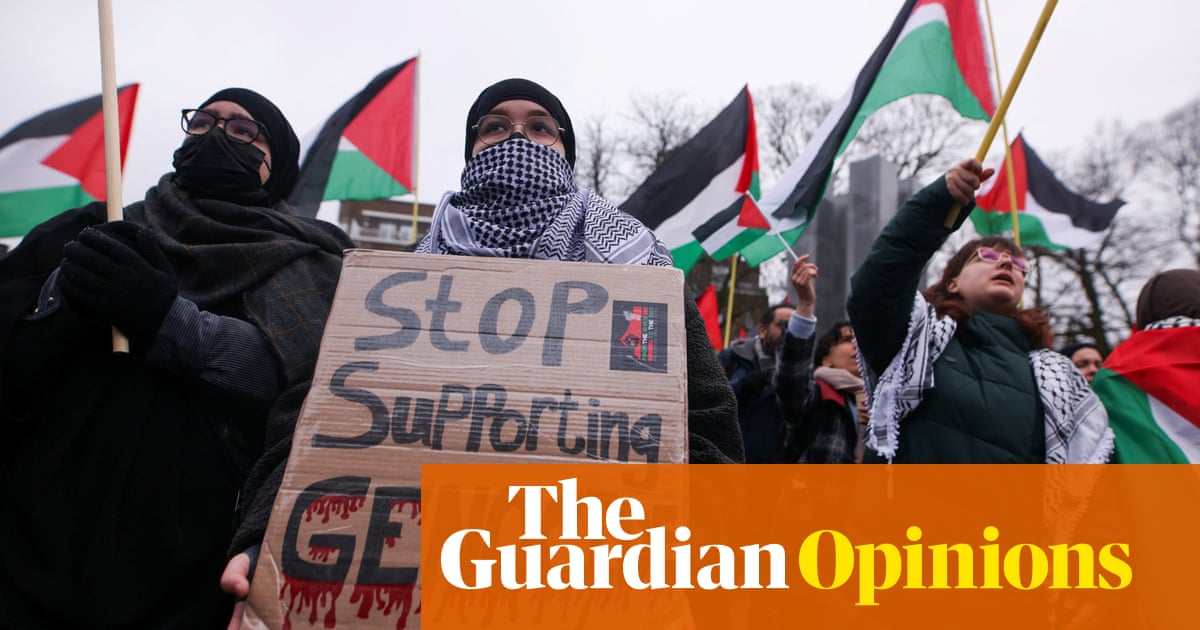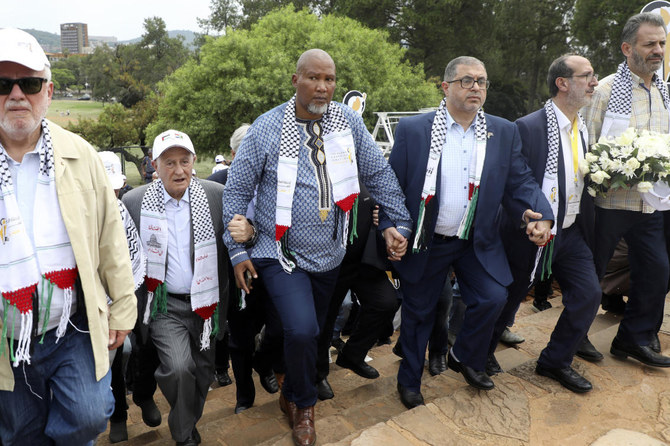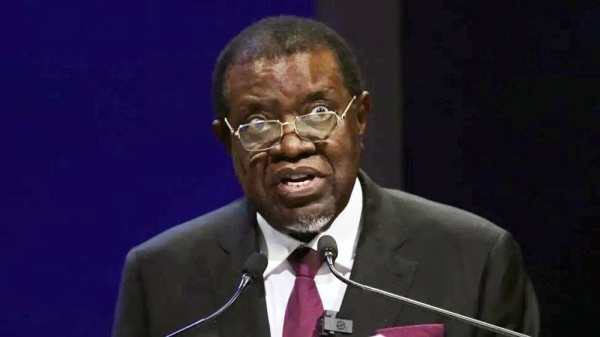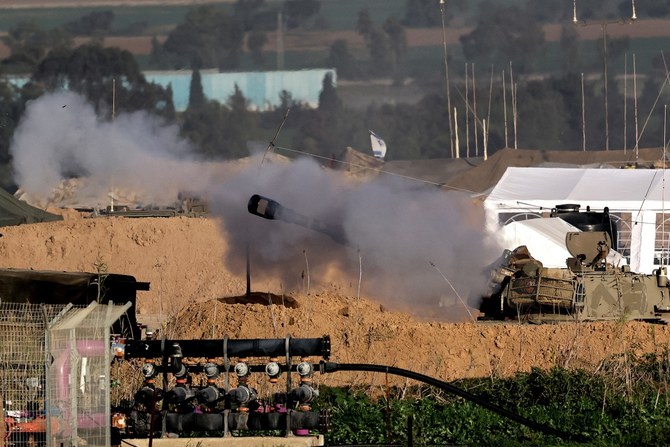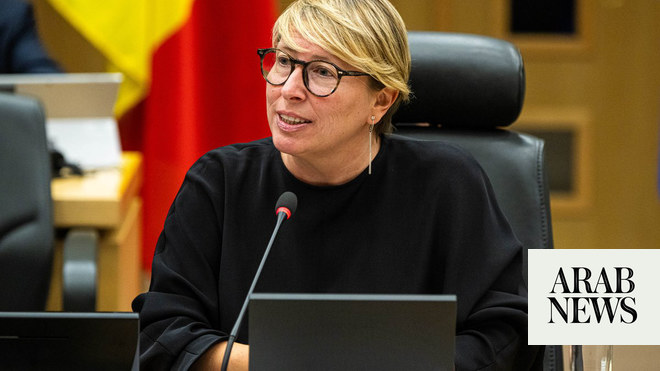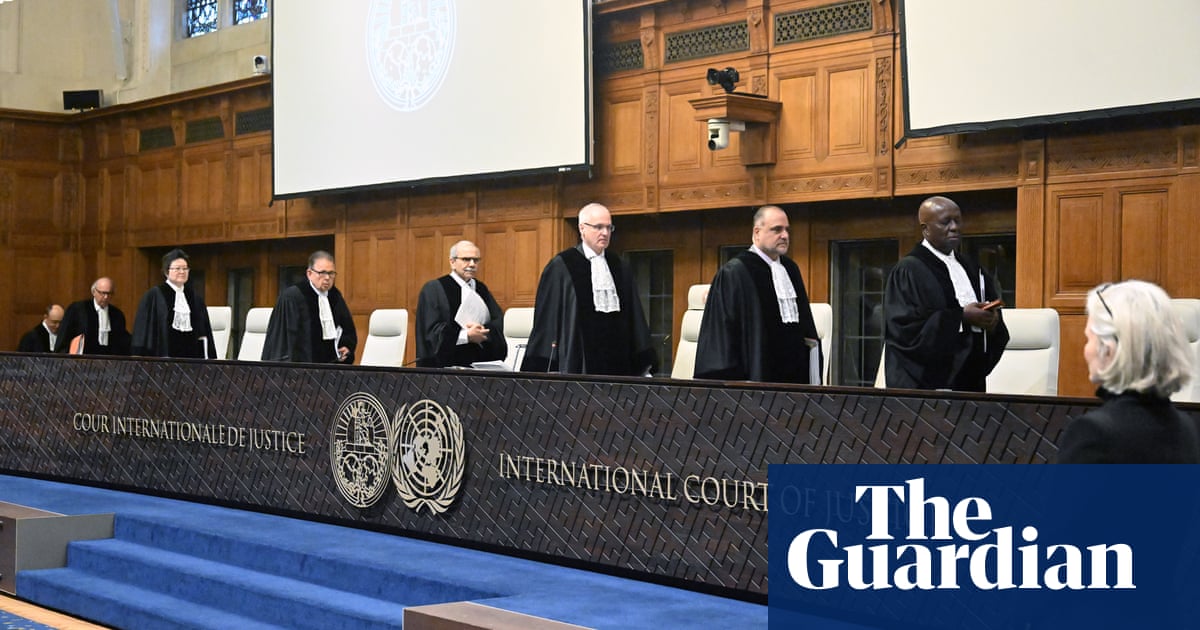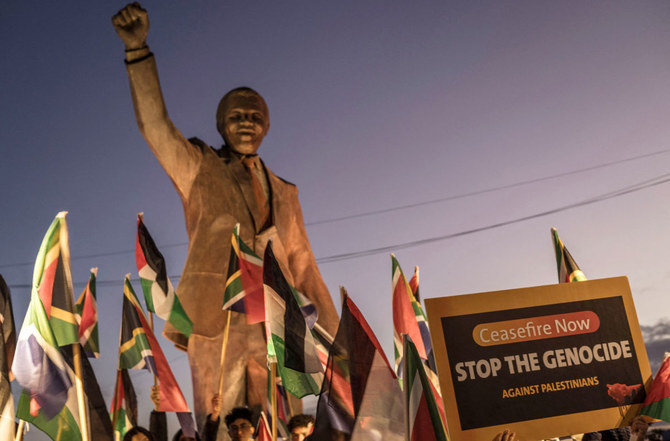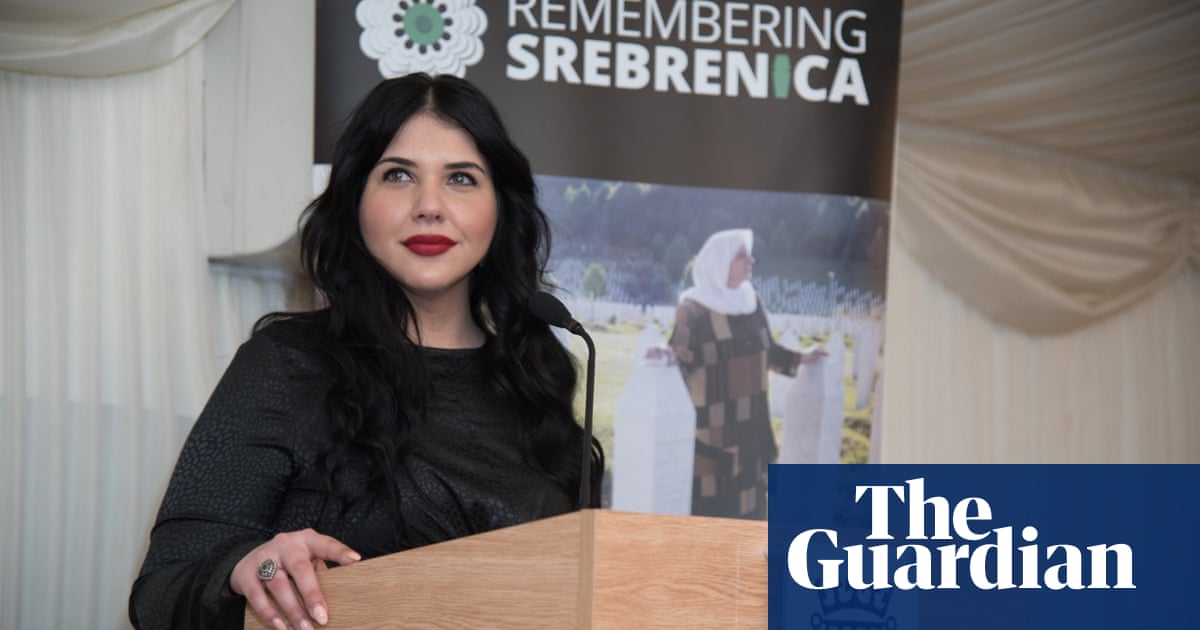
After watching South Africa’s case against Israel at the UN court last week accusing the state of committing genocide in its military campaign in Gaza, Bosnian war survivor Arnesa Buljušmić-Kustura felt compelled to act.
As a child living under siege in Sarajevo, her relatives were among the 100,000 killed during the 1992-95 war. While her father survived being imprisoned in a concentration camp, the remains of other relatives have yet to be found. At the age of five, she recalls being shot at by a sniper while collecting water from aid trucks.
Reminded of the atrocities of the war and the Srebrenica genocide, she fears the landmark case brought against Serbia for genocide in The Hague decades ago – which found that genocide did take place in Srebrenica but cleared Serbia of direct intent to commit genocide – will become the precedent for other genocide cases.
“It is crazy that 30 years later we are still in the same position, having the same discussions,” said Buljušmić-Kustura, a genocide educator in London.
“We’re really on the precipice right now where it is not just Israel that is on trial, in a way it is the entire international humanitarian law and the framework of it.”
After watching proceedings in The Hague last week, Buljušmić-Kustura has gathered more than 1,000 signatures from Bosnian genocide and war survivors across Bosnia, the US and the UK in an open letter to the international court of justice (ICJ). It calls on the UN court to prevent the repetition of history by implementing the “provisional measures” put forward by South Africa requiring actions, such as a ceasefire, to mitigate the risk of genocide.
Israel said the provisional measures should be rejected, calling them “unconscionable” and saying they seek “to thwart Israel’s inherent right to defend itself”.
The letter calls the measures “critical to preventing further mass atrocities”.
“History has shown us that the failure of the international community to impose a suspension of military activity on the former Federal Republic of Yugoslavia in 1993 resulted in genocide, forcible ethnic displacement, and various crimes against humanity,” the letter says. “A timely ceasefire, as suggested by the Republic of Bosnia and Herzegovina in 1993, could undoubtedly have saved many lives.”
Israel’s war in Gaza, prompted by the 7 October massacre by Hamas, has killed more than 22,000 Palestinians. Watching the war online in real time has brought traumatic memories to the surface for many Bosnian survivors, activists and educators, said Buljušmić-Kustura.
“Everyone I speak to is having these very similar feelings,” she said. “And how could they not, having to watch it live on their phone? You can’t escape it.”
For Ahmed Hrustanović, the letter to the ICJ is a small act that survivors can take. “That court could [have] stopped the war in former Yugoslavia, but they didn’t. So they now have the chance to make it better for the people in Palestine. They didn’t help us, and what happened? Genocide in Srebrenica,” Hrustanović said.
In 1993, the ICJ indicated certain provisional measures with “a view to the protection of rights under the Genocide convention”. In July 1995, Bosnian Serb forces systematically murdered about 8,000 Bosnian Muslims, including Hrustanović’s family members in Srebrenica. It remains the only massacre in Europe since the second world war to be ruled a genocide.
“Our traumas are awakening, we are suffering, we are remembering what we survived, so we tried to do something,” said Hrustanović, who returned to Srebrenica a decade ago. “It’s for them, it’s not about us.”
Having faced persecution as a child during the Bosnian war, Emina Ćerimović said she knows the importance of justice and accountability first-hand. As associate director for Human Rights Watch’s disability rights division, she has spoken to Palestinians with disabilities in Gaza in recent weeks.
“The gravity and severity of horrors they, and all Palestinians in Gaza, are facing at a scale unprecedented in the modern history of Israel and Palestine make the ICJ proceedings much needed,” she said.
In the proceedings, South Africa cited the international community having “repeatedly failed” people in Rwanda and Bosnia and the Rohingya people in Myanmar. The ICJ may issue a provisional ruling within weeks.
“South Africa has unlocked a process at the world court to credibly examine Israel’s conduct and consider measures that could prevent suffering, protect civilians and ensure compliance with international law,” said Ćerimović, calling on governments around the world to support the proceedings.
Last week Germany said it would intervene in the proceedings on Israel’s behalf, saying there was “no basis whatsoever” for an accusation of genocide.
“The German government decisively and expressly rejects the accusation of genocide brought against Israel before the international court of justice,” a government spokesperson said in a statement. “In light of German history and the crimes against humanity of the Shoah, the German government is particularly committed to the [UN] genocide convention,” , he said.
Under the court’s rules, if Germany files a declaration of intervention in the case, it would be able to make legal arguments on behalf of Israel.
The 1948 convention, enacted after the mass murder of Jews in the Nazi Holocaust, defines genocide as “acts committed with intent to destroy, in whole or in part, a national, ethnical, racial or religious group”. The ICJ’s decisions are final and without appeal, but the court has no way to enforce them.




